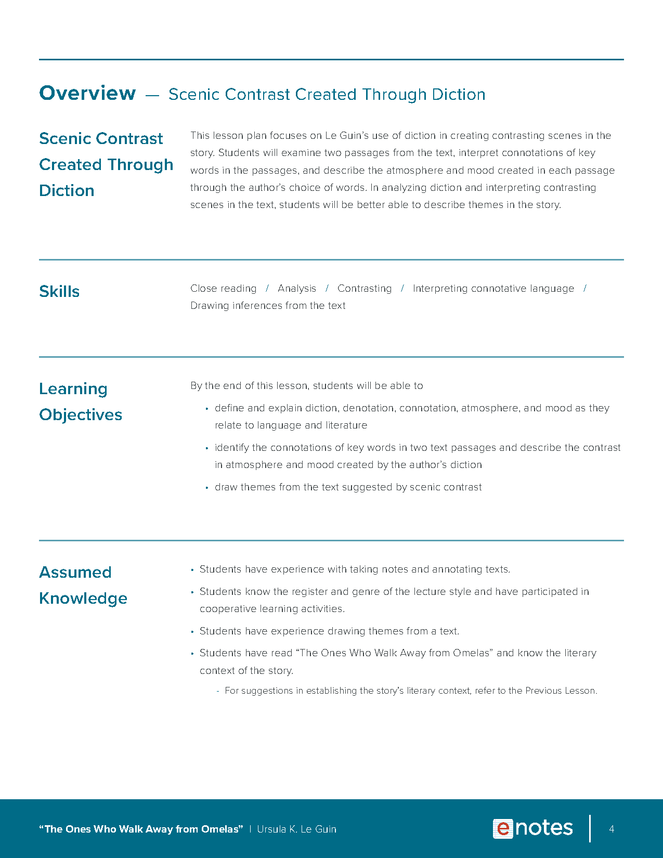


The salient descriptions used to express the child’s predicament gives an image of a deprived, unloved, and underfed being. Nevertheless, all these comforts are made permissible in exchange for an unfortunate condition: that a child shall endure isolation and suffering, locked up in what appears to be a cupboard in an unspecified room within Omelas. The initial positivity emitted with people cheerfully celebrating a summer festival insinuates how Omelas is very much like a utopian place where everyone relishes in infinite happiness. It is therefore a valuable moral conundrum. Le Guin’s “The Ones Who Walk Away from Omelas” delves into this idea of ethics and morality and concocts a set of solutions that one can consider when contemplating ethics and morality. Ethics is therefore adjudged as an intrinsic component that is fundamental to taming the society. The general conviction is that one ought to emulate and assent to these morals in order to attain a strong sense equanimity that will help anchor the society. It is a collaborative perception detailing the seamless thread of morals that one may acquiesce in. Ethics is the fulcrum of right and wrong in our society.


 0 kommentar(er)
0 kommentar(er)
